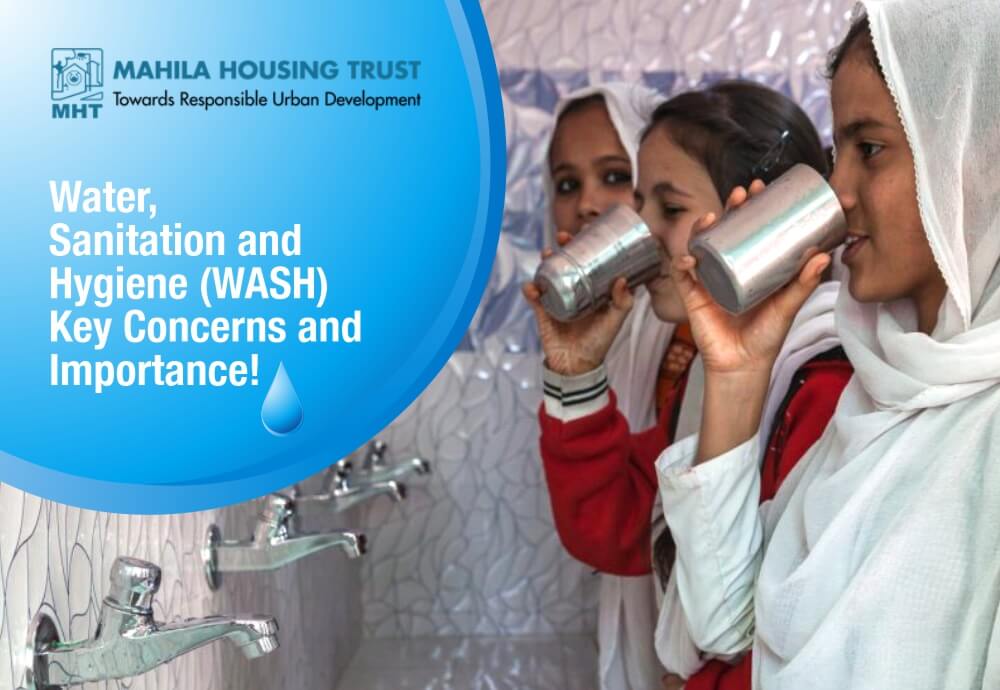
Water, Sanitation, And Hygiene (WASH) – Key Concerns and Importance!
Clean water, sanitation, and hygiene are the key pillars of a healthy life for everyone. Though it may seem like an unlikely scenario, there are still some regions of the world where there is a shortage of clean water and better sanitation facilities.
As per stats, over 50% of the population in Mozambique, Angola, Ethiopia, Eritrea, and six other countries lack access to clean water and sanitation facilities. On top of that, as per the current scenario, by 2030, 16 billion people will lack safely managed drinking water, 2.8 billion people will face issues with sanitation, and 1.9 billion people will lack hand hygiene facilities.
How are Poor WASH Services and Facilities a Concern?
There are various direct and indirect concerns that poor WASH services and facilities have.
1. They Lead to Health Risks
One of the prime concerns of poor WASH services is the health risks. In numerous regions worldwide, people defecate in the open due to a lack of toilets and improper sanitation. Some of those regions are in India, Pakistan, Russia, Brazil, etc.
The issue with outdoor defecation is the seeping up of water. When water seeps into the ground, it not only contaminates the water bodies but also affects the fertility of the soil. As drinking water is directly linked with both scenarios, the possibility of health risks like Cholera, Hepatitis, and Typhoid is high.
2. Leads to Poverty
Though it might look unlikely, the effect of poor water sanitation and hygiene can be indirectly seen in the poverty rate.
You see, girls face the most issues with outdoor defecation due to the stigma of periods. Moreover, they are made to travel across villages to collect water. These routine chores take up much of their study time which is why they don’t get the required education. Though this situation is not that prevalent, it is still there in some regions. The lack of knowledge leads to limited to zero income and more poverty.
3. Less Economic Opportunities
The availability of fewer economic opportunities is linked to the education aspect. People who are affected by the effects of contaminated drinking water and bad sanitation often tend to stay ill, which prevents them from getting and sustaining a job. This leads to low income.
Why Clean Water, Sanitation, And Hygiene Are So Important?
As we are done with the concerns related to poor WASH services and facilities, let’s have a look at the importance of sanitation, clean water, and hygiene.
Groundwater Protection
Providing clean water and sanitation should not be optional. It needs to be available for everyone as it can elevate groundwater protection. With zero defecation in the open, the water collected by the underground reservoirs would be clean.
Reduction in Water-borne Pathogens
The second benefit of good WASH services is a reduction in water-borne pathogens. As people will get a dedicated place to pee and poop, the external water stays free of any pathogens.
Disease-free Community
A disease-free community is promised when there is clean water, sanitation, and hygiene. Efforts all across the globe are made to provide clean water to the people in the affected areas. As per stats, around 107 million people got access to safely managed drinking water, and 115 million people got access to safe toilets between 2015 and 2020.
How Mahila Housing Trust Can Help?
Mahila Housing Trust is an Indian initiative that focuses on improving the lives of women living in poor communities. The trust helps them acknowledge their civil rights and provides access to basic services. If you belong to an area where WASH services are not properly available, MHT can help you.
Conclusion
Everyone has a right to clean water, sanitation, and hygiene. And it is necessary for the local governments to make sure that every person has access to WASH services. If you or anyone in your community is in need of them, you can get in touch with Mahila Housing Trust.
Check Out: Related Webinar
